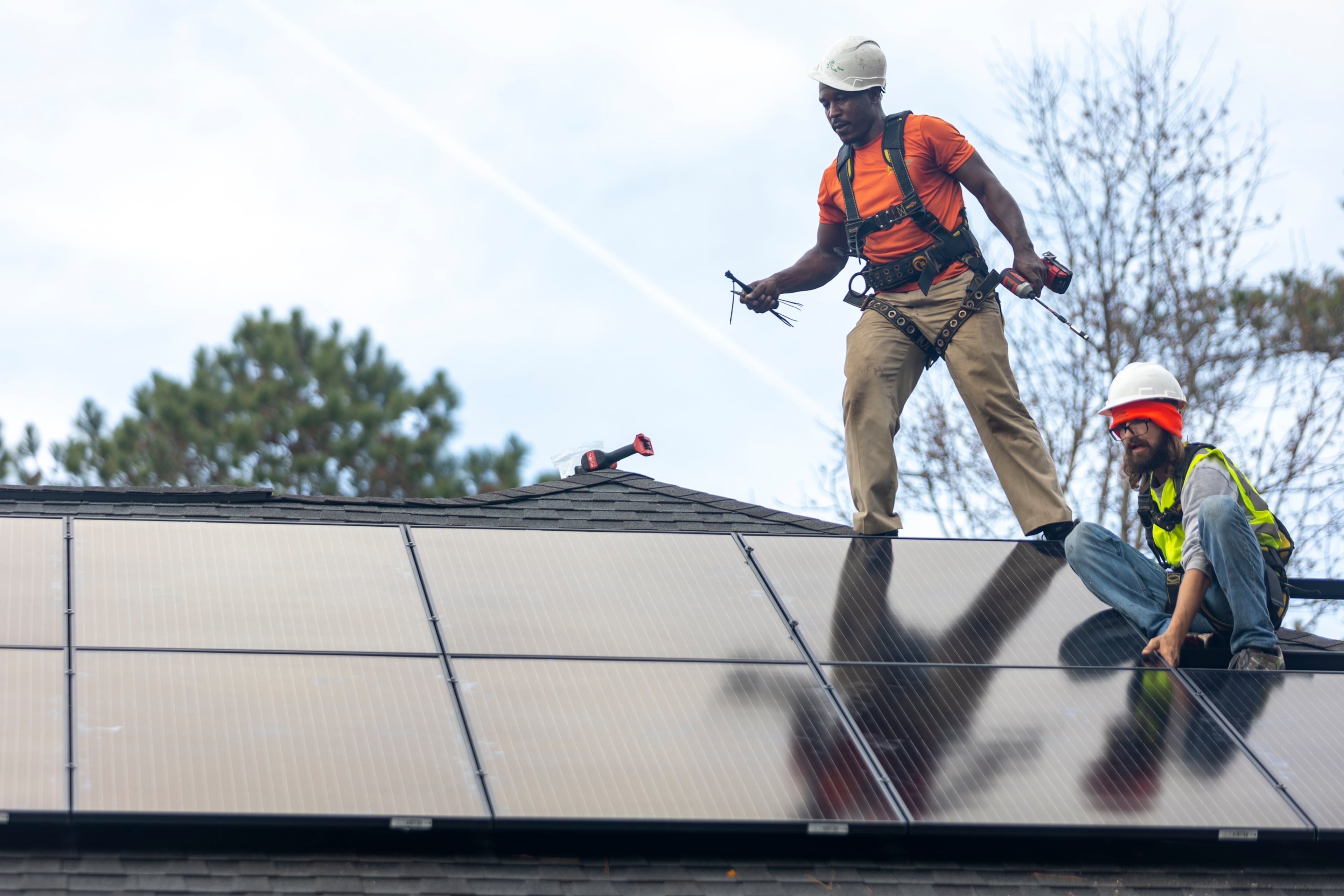Georgia Power’s energy vision comes into focus at hearings

Over two days of marathon hearings this past week, Georgia Power sought to explain why the company’s 200-plus page energy plan is the best one for serving customers in the coming decades.
Environmental groups, consumer watchdogs and even solar installers peppered the utility for hours. Members of the Public Service Commission (PSC) — the state’s utility regulator — also probed whether Georgia Power’s Integrated Resource Plan (IRP) will allow the company to generate and deliver reliable electricity, without ballooning power bills.
Many more hearings will be held before the commission votes in July to approve or force the company to tweak its plans. That’s when the potential impact to ratepayers’ bills will come into focus.
In the meantime, here’s what you should know:
Coal is on life support
Just 20 years ago, roughly 75% of Georgia Power’s electricity came from coal. By 2030, a company spokesman said it it will provide just 3%.
And listening to Georgia Power’s witnesses answer questions, it is clear that coal’s time as a critical part of the company’s energy mix will soon be over.

“We just don’t see a lot of positives in the future for the coal fleet,” said Jeffrey Grubb, the company’s director of resource policy and planning.
The company wants to shutter all of its coal units, except at Plant Bowen in Bartow County, by 2028. Two final units at Plant Bowen will close no later than 2035, the company’s plan says. The shift away from coal has led to significant reductions in Georgia Power’s emissions of greenhouse gases.
However, there was interest from the PSC in keeping two other units at Bowen open in reserve in case of crisis. Vice Chairman Tim Echols referenced the 2021 polar vortex that hit Texas, which crippled the state’s power grid and left millions without electricity for days in the bitter cold. A review by the state’s health services department connected 246 deaths to the hard freeze. The Texas disaster had little to do with its power sources, a federal investigation found, and instead blamed the state’s failure to winterize infrastructure.
Georgia Power witnesses acknowledged that it would be possible to keep those units operational and said the risk of not having enough electricity to meet demand is greatest in winter. However, they said keeping them open could incur costs, presumably for rate payers to bear.
A glimpse of our energy future
As it turns away from coal, Georgia Power is going big on solar. It plans to add 6,000 megawatts of new renewables to its system by 2035, and most of that is likely coming in the form of new solar arrays. That would represent roughly 40% of its current generating capacity, compared to 3% today.
But increased reliance on solar presents challenges, such as how to generate or store electricity when the sun isn’t shining.

Georgia Power wants the commission to authorize a 1,000 megawatt battery storage system. Witnesses for the utility said that the batteries will improve the reliability of solar power and boost overall grid flexibility.
Georgia Power also wants to build two “tall wind” demonstration turbines, with rotor blades mounted on hubs as high as 165 meters in the air. No site has been selected yet, said Wilson Mallard, the company’s director of renewable development, but he hopes the project will prove that wind also can be viable in Georgia.
Rooftop solar remains a sticking point
As expected, rooftop solar was a major issue.
In 2019, the PSC created a pilot program that allowed property owners with rooftop solar to dramatically lower their energy bills. It was capped at just 5,000 participants, and it filled up last summer.

Those who missed out on a spot say that they are not being reimbursed fairly for excess energy they send back to the grid. Solar installers also say the pause has hurt their business. And solar proponents tout the added resilience to power outages that they say comes from having mini power plants installed on rooftops.
But so far, Georgia Power appears to be against expanding the program.
Georgia Power said it is still evaluating the effects of the program and wants to do so for at least a year. But the company says it is seeing early evidence of cost-shifting from participants to non-participant rate payers to the tune of $1.5 million. In essence, the company claims customers with rooftop solar are paying less than their fair share to maintain the grid.
Still, the issue might not be resolved until later this year.
Potential conflict over coal ash looms
The hearings got animated when talk shifted to Georgia Power’s coal ash, a byproduct from years of burning coal at its power plants. Georgia Power wants to store its leftover ash in landfills and impoundments around the state.
However, the company’s plans for some of those sites may not be in line with federal guidelines, based on the Biden administration’s interpretation of the rules.
Vice Chairman Echols appeared concerned that after building structures to contain the coal ash, Georgia Power could have to dig it up in the future to comply, potentially costing the company and rate payers more money.
It’s unclear whether the PSC will make Georgia Power change its plans — as Echols said it could — or whether state and federal regulators will take action. But the issue is not going away anytime soon.
What’s next
The next set of hearings on Georgia Power’s long-range plans start May 24. Right now, the PSC is scheduled to vote on final approval of the plan in mid-July.



